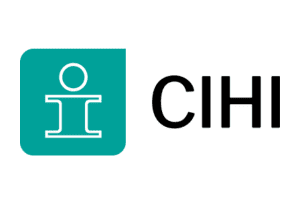e-Health 2003: Decades away but not

It was a time when Toronto and the world were dealing with the post-pandemic phase of a fatal respiratory virus and the prospects for digital and telehealth appeared to be limitless. While that describes today it also describes 20 years ago.
The year was 2003 and thirty-seven pages of handwritten notes about the e-Health Conference held in Toronto at that time provide a fascinating snapshot of just how far the field has changed in the past two decades and the persistence of many challenges faced at the time.
Delegates are busy preparing for this year’s e-Health Conference and Tradeshow also being held in Toronto at the end of May with opening and closing keynotes focusing on workforce issues, and indigenous and transgender health and sessions dealing with virtual care and telehealth, patient experience, AI and innovation. The 2003 meeting attracted a thousand delegates to a meeting at a time when Canadian physicians were only starting to implement electronic medical records (EMRs). It was also a time when Canada Health Infoway, created two years before was just beginning to flex its muscles in helping to build an e-health infrastructure for the nation, and when e-health to the academic world meant patients going online to find information.
A brief series of vignettes provides a snapshot of what went on at that meeting.
Patient privacy
Patient privacy and confidentiality was top of mind for the e-Health community in 2003 with several speakers focused on the topic. The federal Personal Protection and Electronic Documents Act (PIPEDA) was still in the process of being rolled out and people were still struggling with how it applied to e-Health especially as provinces were in various stages of introducing their own privacy legislation. In a session titled “The politicization of health privacy legislation in Canada,” Anita Fineberg, then corporate counsel and chief privacy officer, Canada & Latin America for IMS Health, noted the fragmented approach being taken to patient privacy in Canada. “It’s impossible for people in the health sector to know with any certainty what the rules are,” she said after detailing a formidable number of barriers to putting a workable privacy framework in place.
It would be nice to think there is relatively little focus on this issue in 2023 because of strong legal protections that were put in place. We now talk more about cybersecurity for hospitals than safeguarding individual patient data. However, it is obviously still a major concern as the task force report prepared by Canada’s leading medical organizations noted in 2000 that “patient privacy and maintenance of confidentiality of information exchange must be preserved through virtual care.”
Physician Use of EMRs/Electronic Health Records
We have already written about how the 2003 conference had a special debate on whether use of EMRs by physicians should be mandatory. But the conference also spotlighted group practices which had implemented EMRs and a special workshop looked at change management and how Infoway was in the forefront of work on a pan-Canadian solution for an electronic health record (something the organization would continue to struggle with for the next two decades).
Dr. Robyn Tamblyn (PhD), then associate professor of medicine at McGill University noted the ability of electronic order entry systems to significantly reduce the number of drug errors while also predicting that use of EHRs would become mandatory “whether we do anything about it” and would also become the medico-legal standard of practice.
Patient use of e-Health
In the opening plenary address, Dr. Jeremy Wyatt, professor at the Academic Medical Centre at the University of Amsterdam provided an interesting time-bound definition of e-Health as “using the internet or other electronic media to disseminate or provide access to health and lifestyle information and services.” In this pre-social media era, he noted the increasing number of virtual communities – be they discussion forums or e-mail lists – to give patients a number of choices in engaging about their own health. Even then, Dr. Wyatt referenced the “cyber-divide” and early studies showing inequities based on education and income in who was accessing health information online. He also noted that to date there was “no reliable evidence of patient benefit from using e-Health” The “strongest conclusion” to be drawn from a Cochrane review of telemedicine at the time was that “we need more research on the benefits of e-Health,” he said,
Dr. Alex Jadad, founder of the newly formed Centre for Global eHealth Innovation in Toronto, noted that the healthcare community was making little use of the internet and too many scientists viewed e-Health as “fluff”. He also commented that at the time no hospital was asking for patients’ e-mail addresses to improve communication. Echoing words that came to be used repeatedly through the two decades to come in relation to electronic health records, Dr. Jadad also expressed frustration about people fighting about “who owns my health record.” “My record is mine,” he stated emphatically.
Post-pandemic
In 2003 Toronto was just emerging from wrestling with the SARS virus. Ontario Health Minister Tony Clement addressed how existing electronic systems made it easy for the ministry and the Toronto public health department to communicate about SARS in real time and how important this was in helping deal with the virus. In another session, Dr. William Sibbald noted how easy it would be to track SARS cases using an EMR. Clement also spoke of the need to prepare to operate at a new level of “vigilance and rigor” to deal with new infectious diseases.
The 2003 e-Health conference was a snapshot in time about a field that constantly reinvents itself to a degree almost unheard of in healthcare. There is nothing to suggest the 2023 meeting will be any different.
Pat Rich is a medical and healthcare writer and editor and keen observer of the social media and healthcare world. This article has been reprinted with permission from Days of Past Futures.




